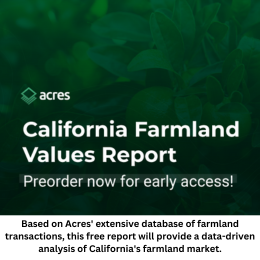June 22, 2021
By Lynda Kiernan-Stone, Global AgInvesting Media
Enko, a Massachusetts-based company that develops novel crop protection solutions, has announced a multi-year partnership with Syngenta Crop Protection to develop next-generation, safe and sustainable crop solutions to resist pests and novel diseases.
The world’s farmers need new tools at their disposal. For years the agricultural industry has relied on age-old, expensive R&D methodologies for the development of crop protection products, resulting in limited options for safe and sustainable ways to combat pests, weeds, and diseases that are increasingly resistant to current treatments.
Globally, more than 600 pests have developed resistance to crop protection methods being currently employed, representing economic losses equity to $10 billion in the U.S. alone. Compounding this challenge, exacerbated by climate change, new crop diseases are spreading into previously unaffected regions.
However, despite the critical need for new solutions, it currently takes 10-12 years on average for scientists and companies to discover and develop new crop protection products. But, by adopting and applying development methodologies from the pharma sector, Enko has the ability to slash the process timeline by half.
Founded in 2017 and incubated by Anterra Capital, Enko takes a revolutionary target-based approach, using its proprietary technology platform, combining technologies like DNA-encoding libraries with machine learning and structural biology, to rapidly discover and develop novel, safe, and economical crop protection solutions.
Through its platform that uses predictive analytical tools and advanced pharmaceutical discovery, Enko’s approach allows scientists to screen more than 120 billion compounds simultaneously to identify molecules that bind like a lock and key to specific enzyme variants in pests.
The company explains that these highly selective molecules are more effective in lower quantities, and do not impact similar enzyme variants in other organisms, which Enko says establishes “safety guardrails from the first step of discovery”. It also reducing time invested and risk by rejecting low probability candidates that won’t pass regulations or become products.
Jacqueline Heard, CEO of Enko explained to GAI News in an interview last September, saying, “The key difference is our hyper-efficient and targeted technological approach. DNA-encoded libraries represent a disruptive technology in drug discovery, providing significantly greater chemical library diversity (billions not millions), speed of screening (days not months), and depth of screening (billions not hundreds of thousands tested). The scale and speed at which Enko can create new and novel starting points for safe, differentiated ag-ready products is orders of magnitude ahead of where the industry is today. We see the value of Enko very quickly moving from target-based discovery to the products we identify and the manner in which we develop them.”
This new R&D model that focuses on uncovering novel modes of action to eliminate pests and combat resistance through new pathways represents a leap forward in potential success rates in the development process, while also ensuring greater safety for humans and the environment.
“The agrochemicals industry is ready to restart innovation for farm chemistry and give growers more safe, effective options to protect their fields.” said David Jones, commercial advisory board chair. “By pulling inspiration from pharma, targeted R&D practices can help us develop better products without investing many hundreds of millions of dollars. Essential crop health products should be affordable and contribute to food security worldwide.”
Now, together with Syngenta, the two companies are working to establish a new R&D model that will drive the industry through shared value to develop crop solutions that are more effective, better for farmers, and make business sense.
“Emerging threats to crop health can only be solved by evolving our approach to designing products,” said Heard. “Collaborating with multinational agricultural companies on more selective and iterative product processes can push the industry forward. Together, we will use intentionality and precision to create novel crop health solutions that are both sustainable and effective, rather than one or the other.”
Lynda Kiernan-Stone is editor with GAI Media, and is managing editor and daily contributor for Global AgInvesting’s AgInvesting Weekly News and Agtech Intel News, as well as HighQuest Group’s Oilseed & Grain News. She can be reached at lkiernan@globalaginvesting.

Let GAI News inform your engagement in the agriculture sector.
GAI News provides crucial and timely news and insight to help you stay ahead of critical agricultural trends through free delivery of two weekly newsletters, Ag Investing Weekly and AgTech Intel.




